Marine Ecosystems And Global Change Ppt Powerpoint Presentation Ocean
Hey there! I have some exciting information to share with you about marine ecosystems and their importance. Marine ecosystems play a vital role in our planet's health and balance. They are home to a wide variety of plant and animal species, provide us with food resources, support local economies, and regulate our climate. So, let's dive in and explore the wonders of marine ecosystems!
Climate Change Will Re-draw the Map for Marine Megafauna
Climate change is an escalating issue that affects not only our land but also our marine ecosystems. It is expected to have a significant impact on marine megafauna, which includes large marine animals like whales, dolphins, sharks, and sea turtles. One of the reasons for this is the rising ocean temperatures, which can alter the distribution of marine species.
As the oceans warm, some species may need to migrate to find suitable habitats and food sources. This can result in changes in predator-prey dynamics and disrupt the delicate balance within marine ecosystems. Moreover, the melting of Arctic sea ice due to climate change affects marine mammal habitat and reduces access to food, endangering their survival.
It is essential that we address climate change urgently to protect our marine megafauna and preserve the balance within marine ecosystems. By reducing our carbon footprint and promoting sustainable practices, we can help mitigate the impacts of climate change on these incredible creatures.
How can we restore marine ecosystems? Perspectives and tips from global
Marine ecosystems face numerous threats from human activities, such as pollution, overfishing, and habitat destruction. However, with the right strategies, we can restore and protect these valuable ecosystems. Let's explore some perspectives and tips on how we can achieve this.
1. Implementing Marine Protected Areas (MPAs): MPAs are designated areas where human activities are regulated to conserve biodiversity and protect sensitive habitats. These areas act as "no-take" zones, allowing marine life to thrive undisturbed. By expanding the coverage of MPAs worldwide, we can provide safe havens for marine ecosystems to recover and flourish.
2. Sustainable Fishing Practices: Overfishing is a significant threat to marine ecosystems. By adopting sustainable fishing practices, such as implementing catch limits, using selective fishing gear, and avoiding destructive fishing methods, we can ensure the long-term viability of fish populations and protect the overall health of marine ecosystems.
3. Reducing Marine Pollution: Pollution from sources like plastics, oil spills, and chemical runoff poses a severe threat to marine ecosystems. It is crucial to minimize the use of single-use plastics, properly dispose of waste, and promote recycling initiatives. Additionally, stricter regulations on industrial and agricultural waste disposal can help prevent pollutants from entering the oceans.
4. Restoring Coastal Habitats: Coastal habitats, such as mangroves, seagrass beds, and coral reefs, are critical for marine biodiversity and play a vital role in carbon sequestration. Restoring and protecting these habitats can provide shelter, breeding grounds, and food sources for marine species while enhancing the resilience of coastal ecosystems against climate change.
By implementing these strategies globally, we can make significant progress in restoring and protecting marine ecosystems. It requires collective efforts from governments, communities, and individuals to ensure the long-term health of our oceans.
Coastal and marine ecosystems: Potential Effects on U.S. Resources
Coastal and marine ecosystems not only contribute to biodiversity but also provide various resources to support the United States. However, these ecosystems are susceptible to the impacts of climate change, which can have consequences for U.S. resources and coastal communities.
One of the primary threats is sea-level rise. As global temperatures increase, glaciers and ice sheets melt, causing sea levels to rise. This can lead to coastal erosion, flooding, and intrusion of saltwater into freshwater systems. These changes can affect the availability of freshwater resources, impact agriculture, and increase the vulnerability of coastal communities to extreme weather events.
Another concern is the potential disruption of fisheries. Many commercial and recreational fisheries depend on healthy marine ecosystems for their livelihoods. Rising ocean temperatures, ocean acidification, and changes in ocean currents can affect the distribution and abundance of fish species, thus impacting the fishing industry and food security.
Furthermore, coastal and marine ecosystems provide valuable ecosystem services, such as shoreline protection, carbon sequestration, and recreational opportunities. These services contribute to the economy through tourism, coastal real estate, and carbon offset markets. The degradation or loss of these ecosystems can have significant economic ramifications.
To mitigate these potential effects, the United States needs to prioritize sustainable coastal management practices and adapt to a changing climate. This includes implementing shoreline protection measures, promoting sustainable fisheries management, investing in green infrastructure, and fostering scientific research to understand and address the challenges faced by coastal and marine ecosystems.
Aquatic ecosystems source of half of global methane emissions: Study
Did you know that aquatic ecosystems, such as lakes, rivers, and wetlands, are responsible for approximately half of global methane emissions? Methane is a potent greenhouse gas, contributing to climate change. Understanding its sources and mitigating its release is crucial for the health of our planet.
Methane emissions from aquatic ecosystems occur due to natural processes and human activities. Microorganisms, called methanogens, produce methane in oxygen-deprived environments, such as the sediments of aquatic systems. Additionally, human activities like agriculture, particularly the cultivation of rice paddies, and the release of untreated sewage can significantly contribute to methane emissions from aquatic ecosystems.
To reduce methane emissions from aquatic ecosystems, several strategies can be implemented:
1. Improved Rice Cultivation Techniques: Altering conventional rice cultivation practices, such as alternate wetting and drying or aerobic rice cultivation, can reduce methane emissions. These techniques involve periods of soil drying, which limits the growth of methanogens and subsequently decreases methane production.
2. Restoring Wetlands: Wetlands, including marshes and swamps, are crucial habitats that support high methane production. Restoring and preserving wetlands can help sequester carbon and reduce methane emissions. This can be achieved through land-use planning, better wastewater management, and reforestation initiatives.
3. Upgrading Wastewater Treatment: Treating and properly managing wastewater reduces the amount of organic matter and nutrients entering aquatic environments. This limits the growth of methanogens and subsequently decreases methane emissions.
Mitigating methane emissions from aquatic ecosystems is essential for global climate change mitigation efforts. By adopting these strategies and promoting sustainable practices, we can help preserve the balance of these ecosystems and reduce their contribution to greenhouse gas emissions.
Marine ecosystems and global change | Manuel Barange
Manuel Barange, an expert in marine ecosystems, highlights the significant impact of global change on our oceans. He emphasizes the interconnectedness between marine ecosystems and processes occurring globally, such as climate change, pollution, and overfishing.
Barange highlights that marine ecosystems cannot be seen in isolation but as part of a complex system. Changes in ocean temperature, acidity, and circulation patterns, driven by global change, have cascading effects on marine life and ecosystem dynamics. These changes can disrupt food chains, alter the distribution of species, and impact the overall health and resilience of marine ecosystems.
It is crucial to consider the multiple stressors acting on marine ecosystems to develop effective conservation and management strategies. This includes addressing climate change through greenhouse gas emissions reduction, improving waste management practices, and adopting sustainable fishing practices. By doing so, we can work towards maintaining the integrity and functionality of marine ecosystems in the face of global change.
Marine Ecosystems - J. Appleseed
J. Appleseed, in their book "Marine Ecosystems," provides a comprehensive overview of the various aspects of marine ecosystems. The book covers topics such as the biodiversity of marine life, nutrient cycling, the role of marine plants in carbon sequestration, and the importance of protecting these delicate ecosystems.
One of the key points emphasized in the book is the vital role of marine ecosystems in regulating our climate. Marine plants, like phytoplankton and seaweeds, absorb carbon dioxide from the atmosphere through photosynthesis, helping mitigate the impacts of climate change. Additionally, healthy marine ecosystems act as carbon sinks, storing significant amounts of carbon dioxide.
However, marine ecosystems face numerous challenges, including habitat destruction, pollution, and overfishing. The book highlights the need for collaborative efforts to protect and restore these ecosystems. Implementing sustainable practices, establishing marine protected areas, and raising awareness about the importance of marine ecosystems are crucial steps towards their conservation.
Increase in heavy rain events hurts ecosystems, business, recreation
Heavy rain events can have detrimental effects on aquatic ecosystems, businesses, and recreational activities. The increase in these events, attributed to climate change, poses several challenges that need to be addressed.
One of the primary concerns is the impact of heavy rainfall on aquatic ecosystems. Excessive runoff from heavy rain can lead to water pollution as it carries pollutants from urban and agricultural areas into rivers, lakes, and coastal regions. This can result in reduced water quality, harm aquatic organisms, and disrupt the balance of these delicate ecosystems.
Heavy rain events can also cause flooding, damaging infrastructure, properties, and businesses located in flood-prone areas. Additionally, increased rainfall can impact agriculture by saturating the soil, preventing proper drainage, and affecting crop growth. The cumulative effects of heavy rain events on businesses and agriculture can result in economic losses.
Furthermore, heavy rain events can limit recreational activities that depend on good weather conditions, such as boating, swimming, and beach visits. Flooding and water quality issues can make these activities unsafe and restrict access to recreational areas.
To address these challenges, implementing effective stormwater management systems, improving urban planning to reduce runoff, and promoting sustainable agricultural practices are crucial. These measures can help mitigate the impacts of heavy rain events on ecosystems, businesses, and recreational activities.
Overall, understanding the importance of marine ecosystems and their response to global change is key to their preservation. By taking proactive measures, promoting sustainable practices, and raising awareness, we can ensure the long-term health and vitality of these remarkable ecosystems. Let's work together to protect our oceans and the diverse life they hold!
If you are searching about | Global map of Large Marine Ecosystems (LMEs). Image Credit: NOAA you've came to the right web. We have 30 Images about | Global map of Large Marine Ecosystems (LMEs). Image Credit: NOAA like Marine Ecosystems and Global Change - UNT Digital Library, Marine ecosystems and global change / edited by Manuel Barange [et and also Marine ecosystem — Science Learning Hub. Here you go:
| Global Map Of Large Marine Ecosystems (LMEs). Image Credit: NOAA
 www.researchgate.net
www.researchgate.net ecosystem noaa ecosystems
Ecosystem intertwined. Aquatic ecosystems representative emissions methane
Coastal And Marine Ecosystems: Potential Effects On U.S. Resources
 ian.umces.edu
ian.umces.edu ecosystems potential
Marine ecosystems are preparing for climate change. Ecosystem noaa ecosystems
Marine Ecosystems And Global Change / Edited By Manuel Barange [et
 www.pinterest.com.mx
www.pinterest.com.mx ecosystems barange manuel edited
Ecosystem permaculture ecosystems kelp oceans forests disappear begin fraud acidification. Coastal and marine ecosystems: potential effects on u.s. resources
GCSE - Global Ecosystems (Lesson 3) - YouTube
 www.youtube.com
www.youtube.com ecosystems gcse
Ecosystems sst 1982 warming. Marine ecosystems and global change / edited by manuel barange [et
Unprecedented Biological Changes In The Global Ocean | Ocean, Systems
 www.pinterest.com
www.pinterest.com unprecedented
How can we restore marine ecosystems? perspectives and tips from global. | global map of large marine ecosystems (lmes). image credit: noaa
Marine Ecosystems And Global Change | Manuel Barange
 www.andrewisles.com
www.andrewisles.com ecosystems barange
Rising co2's impacts on marine ecosystems and the people that rely on them. Ecosystems gcse
Increase In Heavy Rain Events Hurts Ecosystems, Business, Recreation
 www.indianaenvironmentalreporter.org
www.indianaenvironmentalreporter.org aquatic ecosystems climate change indiana affect rain events ecosystem water purdue recreation hurts increase heavy business effects affects impacts assessment
Marine ecosystems extinction ecosystem worst mass events survive study climate weather shows. Ecosystem marine sea system science
Marine Ecosystem — Science Learning Hub
 www.sciencelearn.org.nz
www.sciencelearn.org.nz ecosystem marine sea system science
Biodiversity decline. Marine ecosystems are preparing for climate change
Marine Ecosystem Science On An Intertwined Planet. Changes In Marine
 www.researchgate.net
www.researchgate.net ecosystem intertwined
Unprecedented biological changes in the global ocean. Ocean ecosystem may suddenly collapse if climate change is not reversed
Coastal And Marine Ecosystems & Global Climate Change: Potential
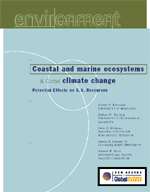 www.c2es.org
www.c2es.org ecosystems
Marine ecosystems and global change. Some marine ecosystems failing-future global warming changes
Frontiers | Global Drivers On Southern Ocean Ecosystems: Changing
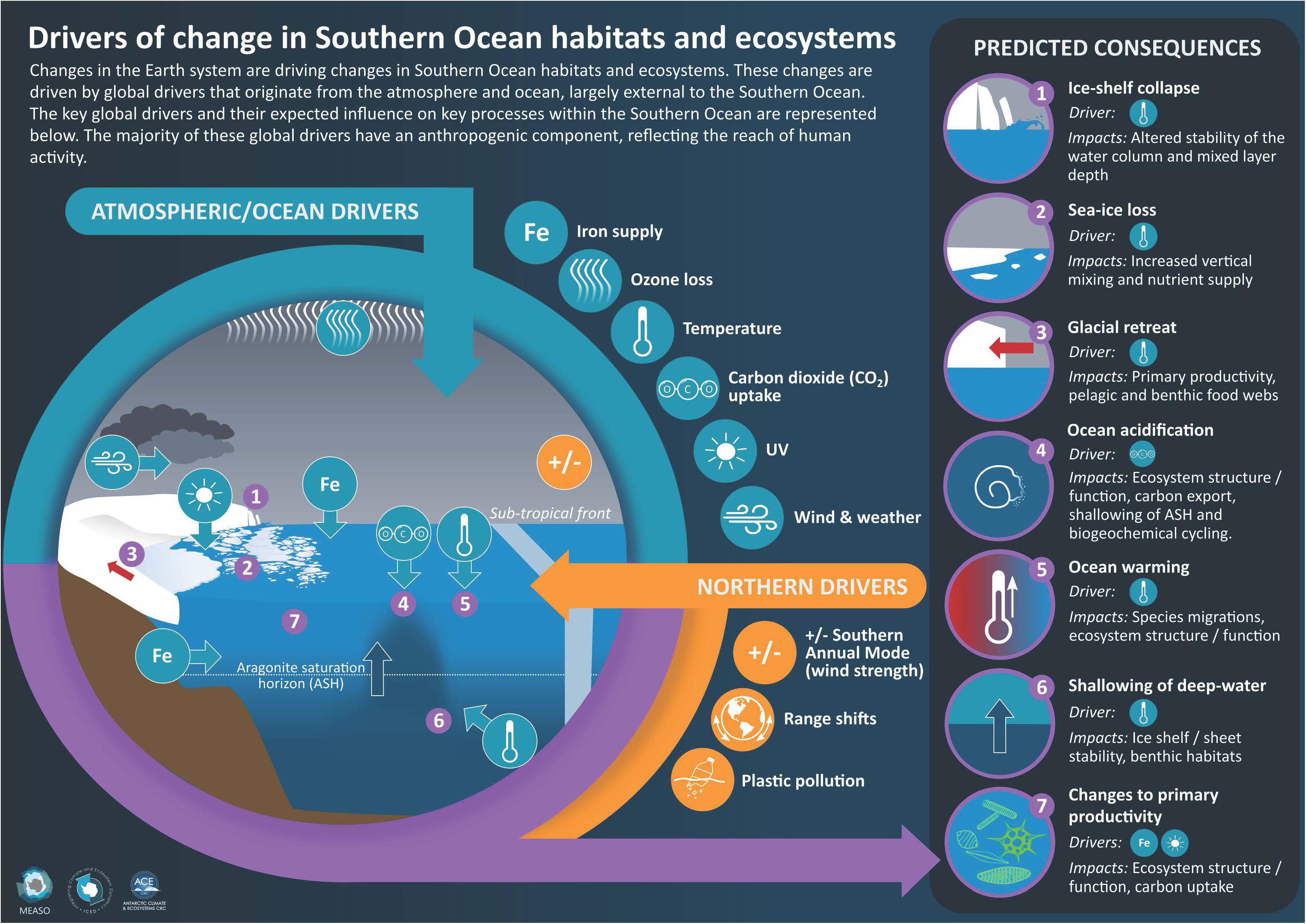 www.frontiersin.org
www.frontiersin.org drivers ocean southern global ecosystems marine affecting physical anthropogenic frontiersin pressures environments changing earth system reaches whose influence northern figure
Southern ocean global change ecosystems observation models impacts soos uncertainties regarding schematic resolve required key illustration. Marine ecosystems ppt powerpoint presentation ocean
BIODIVERSITY: MARINE ECOSYSTEMS OR AQUATIC DIVERSITY BASICS
 biodiversity-corner.blogspot.com
biodiversity-corner.blogspot.com marine ecosystem zones aquatic ecosystems diversity biodiversity ocean four various science shallow divided into basics
Coastal and marine ecosystems: potential effects on u.s. resources. Southern ocean global change ecosystems observation models impacts soos uncertainties regarding schematic resolve required key illustration
How Can We Restore Marine Ecosystems? Perspectives And Tips From Global
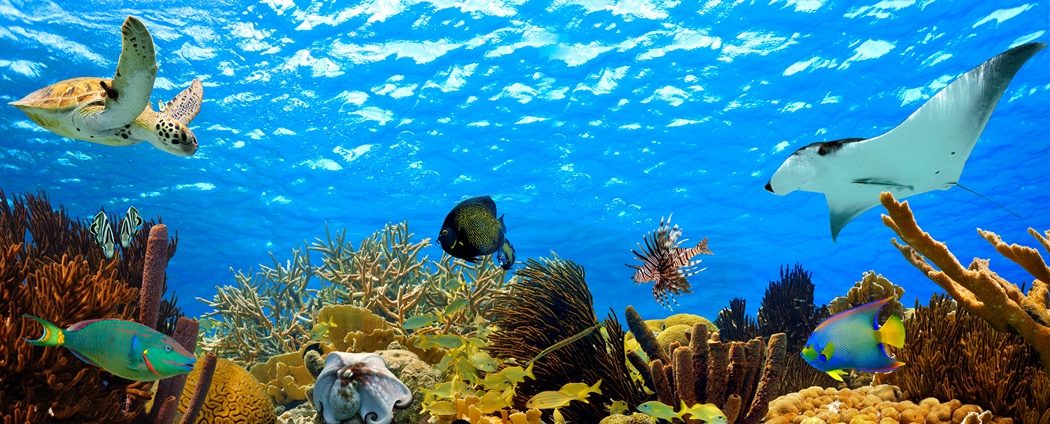 revitalization.org
revitalization.org marine ecosystems ecosystem snorkel caribbean places experts global restore perspectives tips reef restoration
Marine ecosystems chapter ppt powerpoint. Ocean ecosystem may suddenly collapse if climate change is not reversed
Ocean Ecosystem May Suddenly Collapse If Climate Change Is Not Reversed
 www.somagnews.com
www.somagnews.com ecosystem suddenly reversed rhodos schnorcheln environment insures faszinierende unterwasserwelten aroundworld somagnews
Ecosystems lme. Marine ecosystems and global change
PPT - Marine Ecosystems PowerPoint Presentation, Free Download - ID:6799998
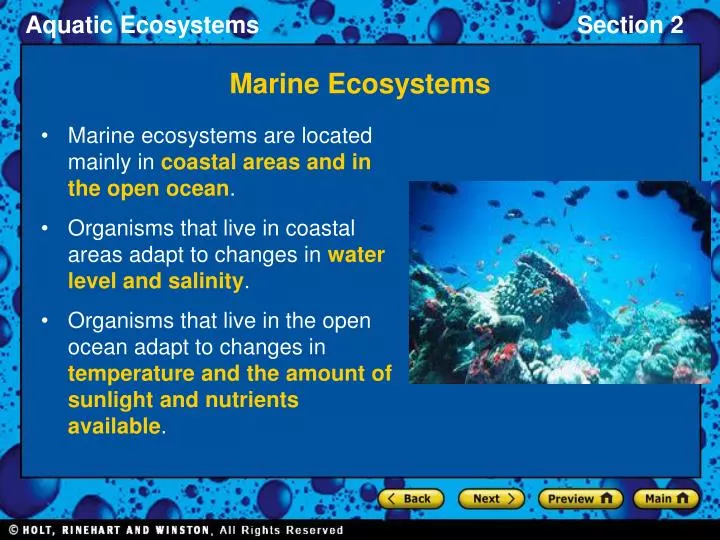 www.slideserve.com
www.slideserve.com marine ecosystems ppt powerpoint presentation ocean
Marine ecosystems extinction ecosystem worst mass events survive study climate weather shows. Biodiversity decline
Aquatic Ecosystems | OMICS Publishing Group - International Science
ecosystems aquatic ecosystem water marine types terrestrial different ocean related fresh habitats environment river resources kind live protect projects their
Coastal and marine ecosystems: potential effects on u.s. resources. Large marine ecosystems
Rising CO2's Impacts On Marine Ecosystems And The People That Rely On Them
marine ecosystems impacts rely rising them
Marine ecosystems. Marine ecosystems
Marine Ecosystems
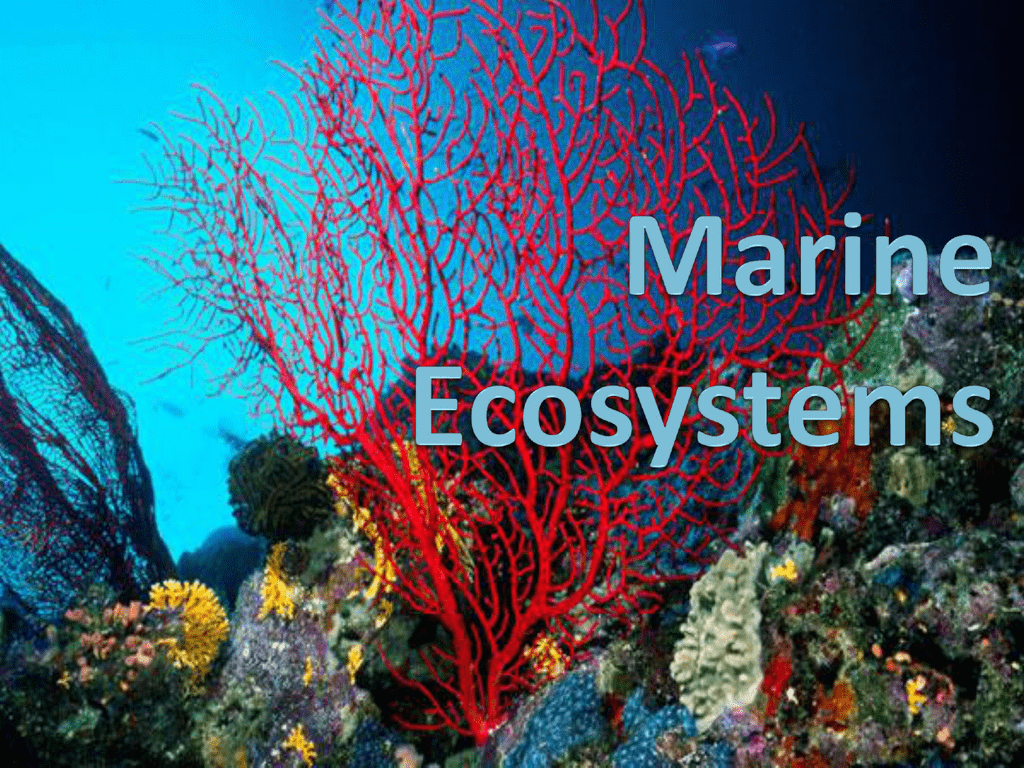 studylib.net
studylib.net marine ecosystems
Unprecedented biological changes in the global ocean. Rising co2's impacts on marine ecosystems and the people that rely on them
Marine Ecosystems Are Preparing For Climate Change - Scientific American
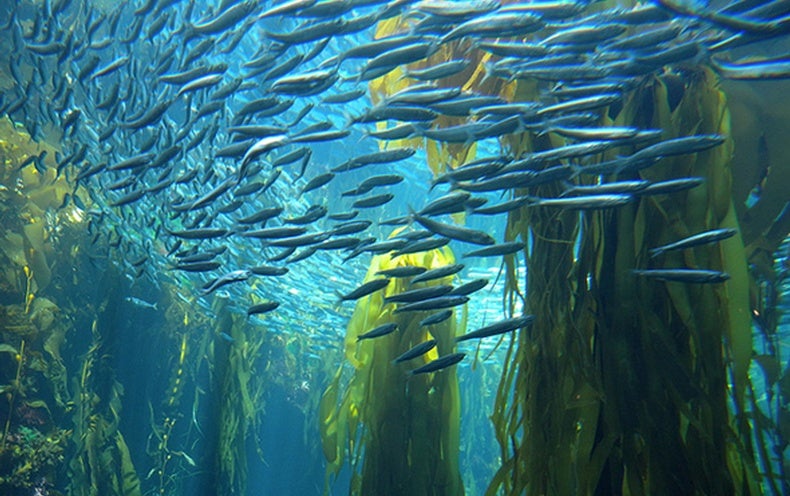 www.scientificamerican.com
www.scientificamerican.com ecosystem permaculture ecosystems kelp oceans forests disappear begin fraud acidification
Marine ecosystems chapter ppt powerpoint. Marine ecosystems and global change / edited by manuel barange [et
Ecosystems
southern ocean global change ecosystems observation models impacts soos uncertainties regarding schematic resolve required key illustration
Marine ecosystem — science learning hub. Marine ecosystems chapter ppt powerpoint
Marine Ecosystems - J. Appleseed
 jappleseedmedia.com
jappleseedmedia.com cover ecosystems marine
Marine ecosystems ppt powerpoint presentation ocean. Aquatic ecosystems
Large Marine Ecosystems | Ecomarres
 ecomarres.com
ecomarres.com ecosystems lme
Megafauna frontiersin depend. Marine ecosystems
The Decline Of Marine Biodiversity – Ocean & Climate Platform
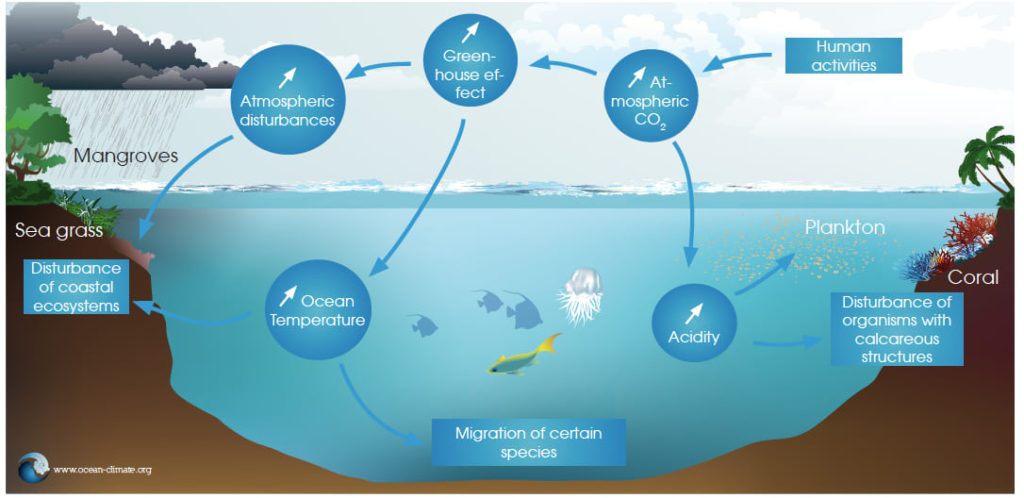 ocean-climate.org
ocean-climate.org biodiversity decline
Marine ecosystems are preparing for climate change. Ecosystem intertwined
Marine Ecosystems And Global Change - UNT Digital Library
unt library digital global change
Marine ecosystem zones aquatic ecosystems diversity biodiversity ocean four various science shallow divided into basics. Ecosystems gcse
Frontiers | Climate Change Will Re-draw The Map For Marine Megafauna
 www.frontiersin.org
www.frontiersin.org megafauna frontiersin depend
Some marine ecosystems failing-future global warming changes. Coastal and marine ecosystems & global climate change: potential
PPT - Marine Ecosystems Chapter 7.2 PowerPoint Presentation, Free
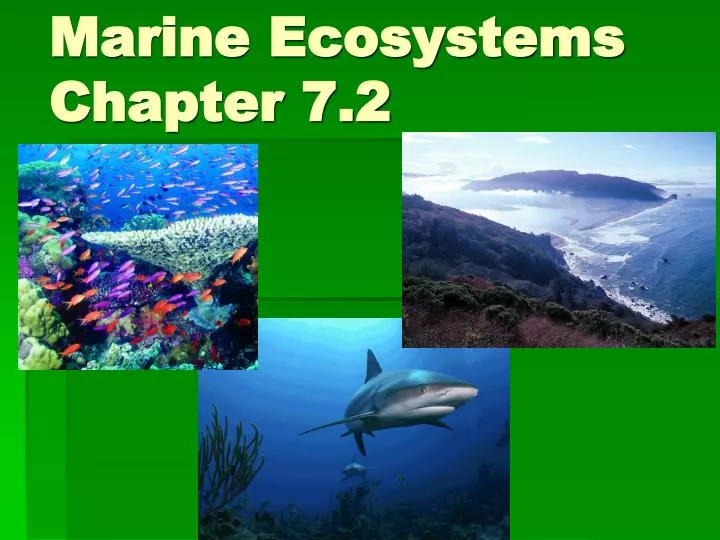 www.slideserve.com
www.slideserve.com marine ecosystems chapter ppt powerpoint
Cover ecosystems marine. Southern ocean global change ecosystems observation models impacts soos uncertainties regarding schematic resolve required key illustration
Some Marine Ecosystems Failing-Future Global Warming Changes
 www.pinterest.com
www.pinterest.com marine ecosystems global choose board warming predictions failing changes future some
Marine ecosystems ppt powerpoint presentation ocean. Ecosystem marine sea system science
Net SST Change (°C) In Large Marine Ecosystems, 1982-2006. Rapid
 www.researchgate.net
www.researchgate.net ecosystems sst 1982 warming
Ecosystem marine sea system science. Rising co2's impacts on marine ecosystems and the people that rely on them
Aquatic Ecosystems Source Of Half Of Global Methane Emissions: Study
 www.aninews.in
www.aninews.in aquatic ecosystems representative emissions methane
Marine ecosystems impacts rely rising them. | global map of large marine ecosystems (lmes). image credit: noaa
Marine Ecosystems Can Survive The Worst Mass Extinction Events, Study Shows
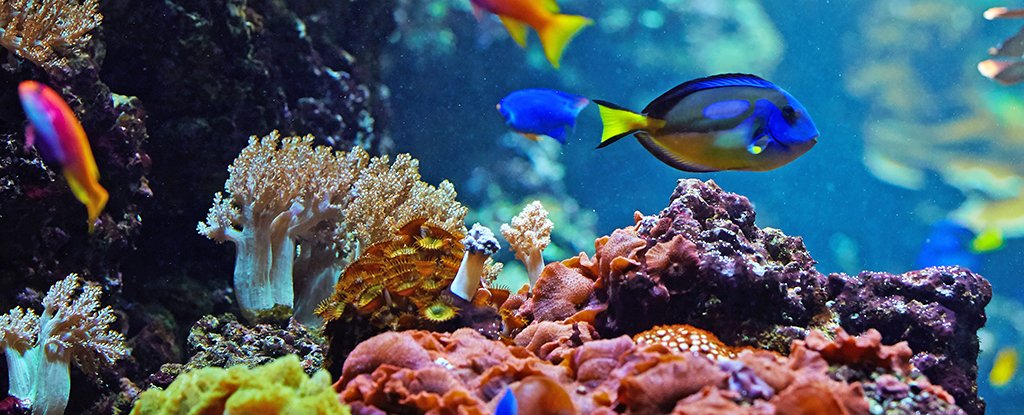 www.sciencealert.com
www.sciencealert.com marine ecosystems extinction ecosystem worst mass events survive study climate weather shows
Ecosystem suddenly reversed rhodos schnorcheln environment insures faszinierende unterwasserwelten aroundworld somagnews. Biodiversity decline
Coastal and marine ecosystems: potential effects on u.s. resources. Ocean ecosystem may suddenly collapse if climate change is not reversed. Ecosystems aquatic ecosystem water marine types terrestrial different ocean related fresh habitats environment river resources kind live protect projects their
Post a Comment for "Marine Ecosystems And Global Change Ppt Powerpoint Presentation Ocean"